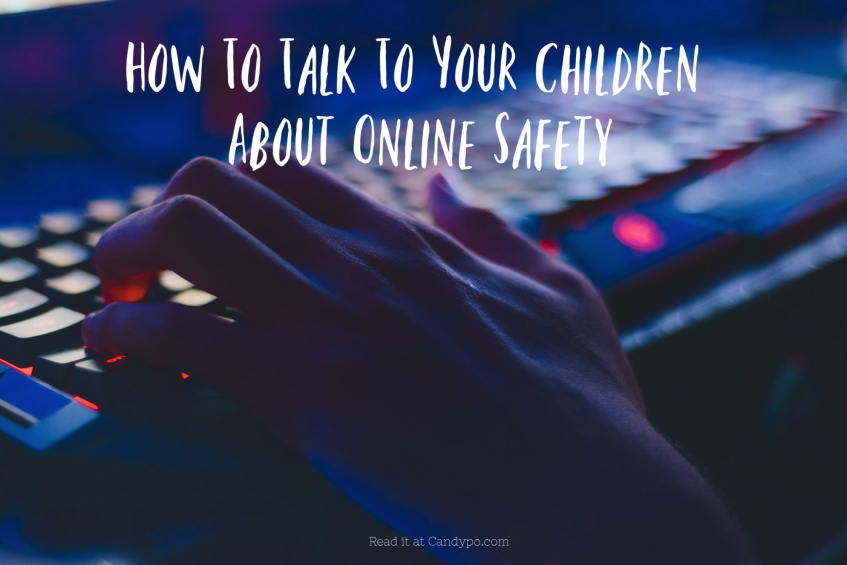In today’s world, children are growing up surrounded by technology. We could never have imagined how it would change everything. As much as it may seem like they’re losing their childhood because of it, we also have to accept as parents that technology is here to stay and instead of sitting around complaining about it or trying to keep our children away from it, we need to accept that it’s going to be part of their lives growing up and that we need to help them embrace it in a way that’s going to benefit them. The conversation needs to happen now, how to talk to your children about online safety could save their lives.

However, as much as we should be embracing it, we should still be smart and realistic because there are a lot of dangers out there when it comes to the internet and social media, so it’s important that we’re able to help children develop an awareness around their safety when it comes to being online.
So, in this post we’re going to share with you some of our top tips when it comes to talking to your children about online safety.
Know what you’re actually talking about:
Often times parents will outright forbid their children to do something without actually understanding the thing they want to do – this can either be because of their own opinion around something or it can be a story they read in the media or some gossip they heard from another parent, however, critical thinking is a skill that everyone should really be focusing on learning to do better because it can make for a much easier and less fearful life. So, for example, instead of just going in and telling your child that they’re not allowed to use this or that, then it’s important that you really do your research so that you have all the facts – good and bad and then this way you can see if there are any benefits to a particular platform and come up with a plan of how they may be able to use it for some things.
Technology and social media aren’t bad in and of themselves, but like everything else, they provide a platform for people – and they can choose to use it for good or bad, so teaching your child how to use things in the right way is important, but in order for you to do that, you have to understand the platform a little and know what you’re talking about.
Have conversations as early as possible:
As mentioned above, children are now surrounded by various forms of technology from a very young age, and although this doesn’t mean they should be using technology from the moment they’re able to talk or walk, it’s important to have age-appropriate conversations with them as they start using it. As your children approach the school years and teen years, it’s important to talk about things like cyber-bullying, online predators, protecting their privacy, etc, so that they know how to keep themselves safe and not be so trusting of everyone they meet online.
Have ongoing, regular chats about it:
Having conversations about these things should always be done when the age for it is appropriate and only you as their parent will know when that is, but it should certainly be something that’s ongoing and done as they get older and start using technology more and more.
Set rules:
Like everything else, just because technology is freely available, doesn’t mean there shouldn’t be limits on its use. So, for example, having rules around screen time, and also ensuring that you set rules around things like what apps your teenager can have on their own, and then even letting them know that a condition for having a phone is going to be that you use Family Orbit to parental control your child’s mobile devices so that you can keep track of them and make sure they’re safe – for example when they’re out with friends.
Help them become aware of what they read online:
As mentioned above, critical thinking is a true life skill, and it doesn’t just apply to parents, but is something we should be teaching our children about, too. In a world where fake news, click-bait headlines and celebrity gossip seems to have been magnified through things like social media, it’s important that children learn to be selective about the things they view and share online and that they’re able to do some research before taking everything they see and read as fact. The thing is, growing up in a world of technology actually provides a lot of good opportunities – especially when it comes to education, so it’s important to understand the difference between fact and fiction online because there is certainly more of the latter.
I just make sure to tell my kids the truth. I also made them watch shows and videos about the bad things that can happen if you open yourself up to trouble online. Kids are going to be introduced to technology in school so you have to start pretty early on this. The school can only do so much, this is where the parent comes in. The school mainly wants them to be on certain sites and stay off others.